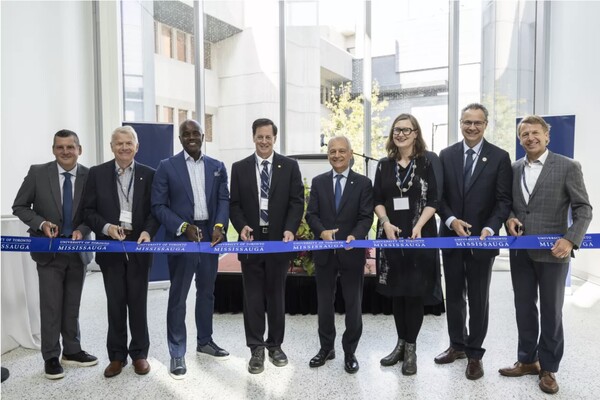Main Second Level Navigation
Breadcrumbs
- Home
- News & Events
- Recent News
- Celebrating the Peterborough K.M. Hunter Foundation’s more than two decades supporting graduate students
Celebrating the Peterborough K.M. Hunter Foundation’s more than two decades supporting graduate students
The family foundation has supported more than 200 health science graduate students over 20 years.
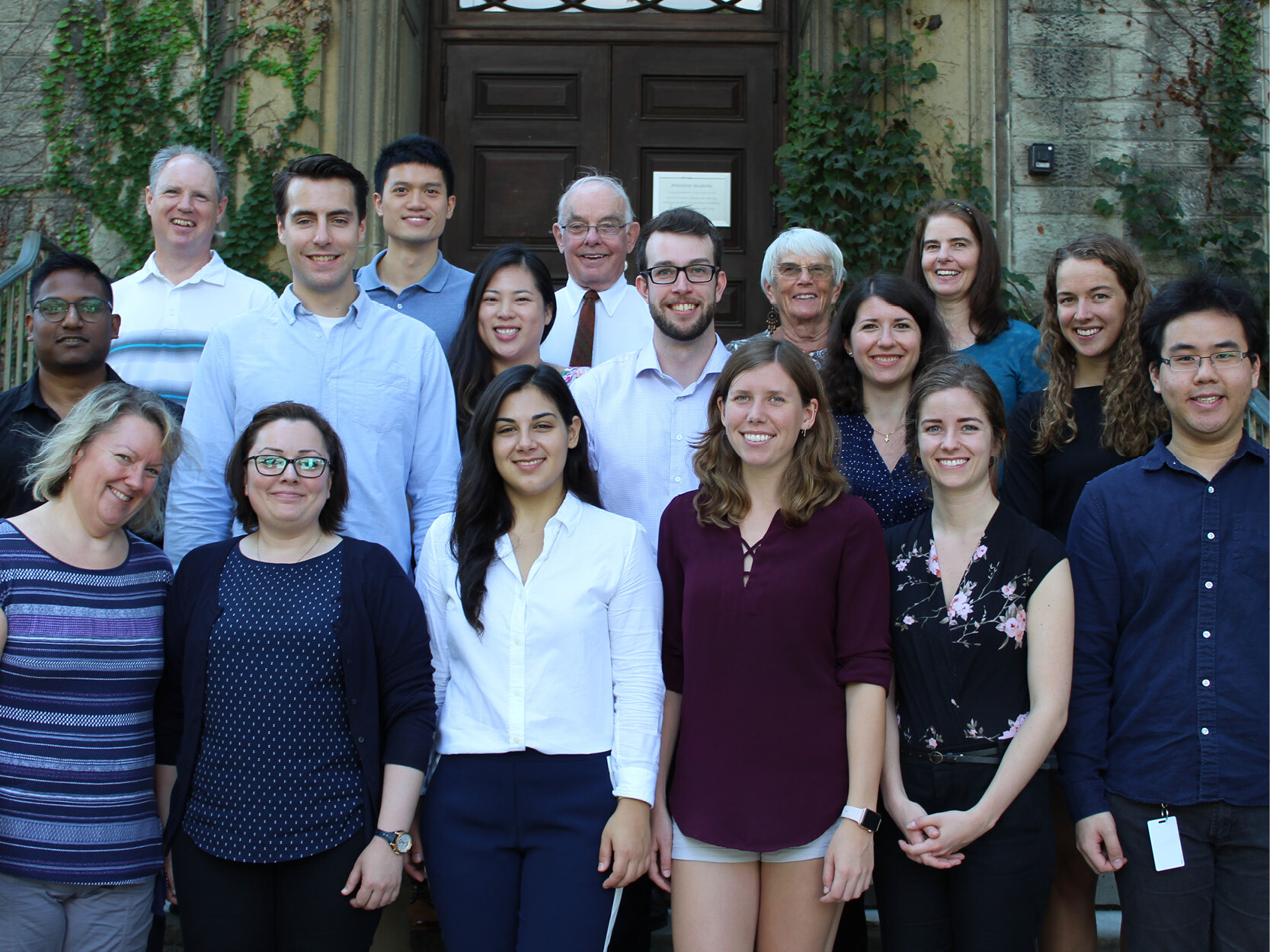
A family of philanthropists has surpassed a major milestone at the Temerty Faculty of Medicine. Since 2003, the Peterborough K.M. Hunter Charitable Foundation has supported more than 200 graduate students in their work advancing vital new health science research.
“We’re not a family of scientists, and yet we feel so welcome by the U of T community,” says Elizabeth Giesbrecht, the foundation’s president and the third generation of philanthropists in her family. “It's so exciting to hear about what these students are doing. You feel like you are a part of this incredible work.”
The Peterborough K.M. Hunter Graduate Awards provide support for doctoral health science students across Temerty Medicine, with preference for those working in fields with significant personal meaning for Hunter family members. These areas include neurodegenerative diseases (in memory of Elizabeth’s grandmother who was diagnosed with Alzheimer’s), mental health (in tribute to an uncle who was diagnosed with schizophrenia), glaucoma (in memory of their grandfather), as well as nutrition (in tribute to both a sister who lives with gluten intolerance and a cousin who lives with celiac disease).
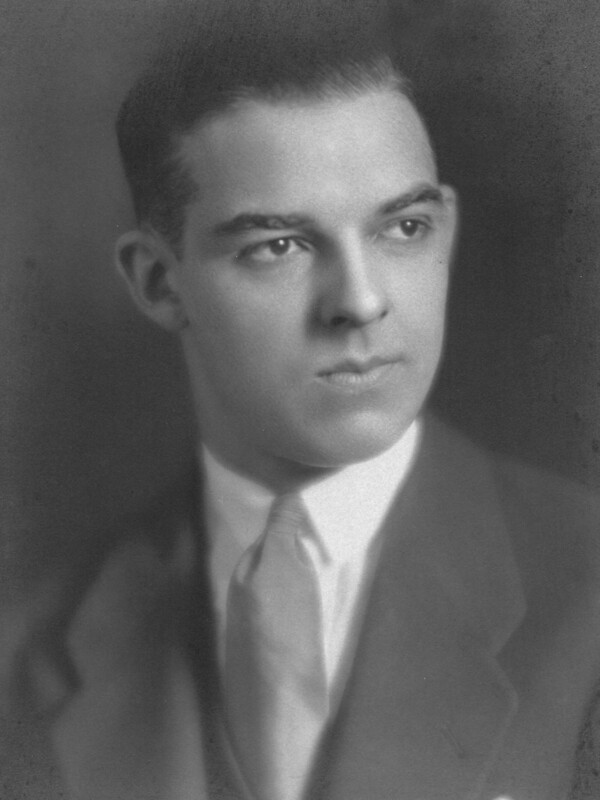
The philanthropic foundation can trace its roots back to 1967, when Giesbrecht’s grandfather, Kenneth Martin Hunter, the president of Buntin Reid Paper, founded the K.M. Hunter Charitable Foundation to support medical research and social services.
The importance of family is deeply woven into the foundation’s operations, with meetings of the board (made up of Giesbrecht as well as her husband, parents and children) taking place over family dinners.
Justin Nodwell, vice dean of research and health science education at Temerty Medicine, notes the incredible impact the family’s generosity has had on graduate students and research activities over the past two decades – and the particular importance of awards today.
“Graduate students are the major enabler of our scientific discovery,” says Nodwell. “Yet, the rising cost of living in Toronto and other Canadian cities, historic inflation and fierce demand for a limited tricounsel funding pool pose significant barriers to pursuing this educational and career pathway. Investing in graduate students is therefore one of our top priorities. It is these people that make the important advances in research, and they will be the future change-agents who will deliver a new century of advances in health and health care.
“We are so grateful for Elizabeth, William and their entire family for their visionary support of the next generation of health science leaders.”
Impact in Action: Three Current and Former Recipients of The Peterborough K.M. Hunter Graduate Awards/K.M. Hunter Graduate Studentships
Natalie J. Galant, PhD
CEO and co-founder of Paradox Immunotherapeutics
Award year: 2017
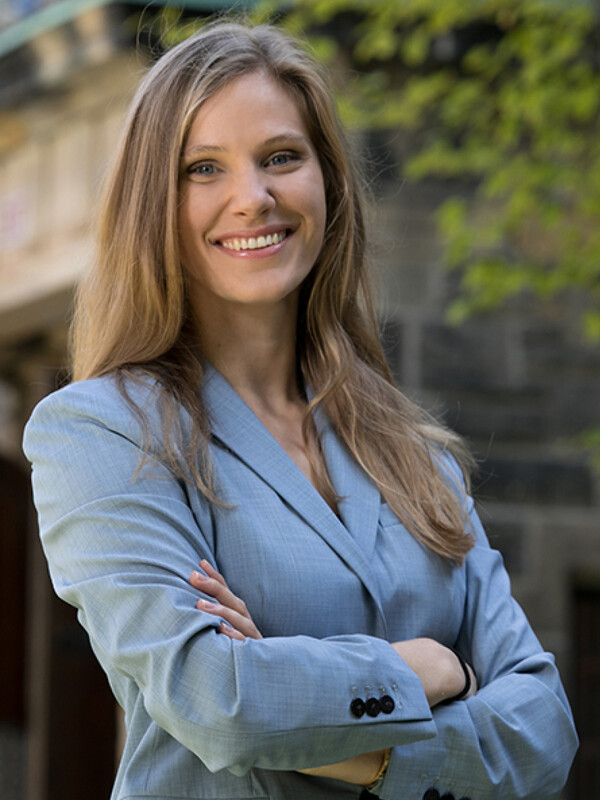
Natalie Galant received her PhD in medical biophysics from U of T in 2018. Galant’s work specializes in protein misfolding diseases, where the build-up of abnormal proteins in the body can negatively impact organ functioning. Conditions involving these faulty proteins – for example, Alzheimer’s disease, ALS, cardiac amyloidosis, and kidney amyloidosis – can be fatal. During her PhD, Natalie’s research contributed to the development of an antibody for the potential treatment of ATTR Amyloidosis, a protein misfolding disease that can impair heart function.
Now serving as CEO of Paradox Immunotherapeutics, Galant and her team are developing antibodies for abnormal proteins through a drug-design platform they created.
Currently investigating antibodies for another protein misfolding disease that can cause heart failure, Galant is also looking to develop potential treatments for conditions that impact the kidneys.
“Graduate students are pioneering the foundational research that will blossom into groundbreaking advancements.” Galant says. “Having awards to support graduate students – who otherwise might not have the opportunity to do this research – is critical to supporting the foundation of what so much of our research relies on.”
V. Armineh Babikian, MSc, PhD Candidate
Founder and Executive Director of Therapists for Armenia
Award year: 2022
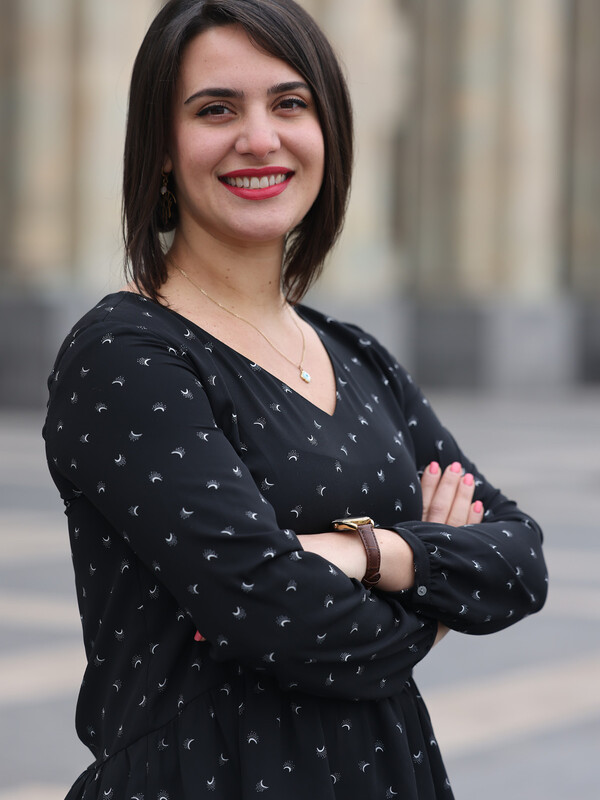
Armineh Babikian is a current PhD Student in U of T’s Rehabilitations Sciences Institute. Before starting her doctoral studies, she worked as an occupational therapist for six years with people with intellectual and developmental disabilities in urban low-income settings in New York City and rural Armenia. She is also the founder and executive director of Therapists for Armenia, a multidisciplinary non-profit organization aimed at enhancing rehabilitation and disability services in Armenia through education, advocacy, and collaboration.
Babikian is passionate about supporting people with disabilities and strengthening health-care services in Canada and abroad.
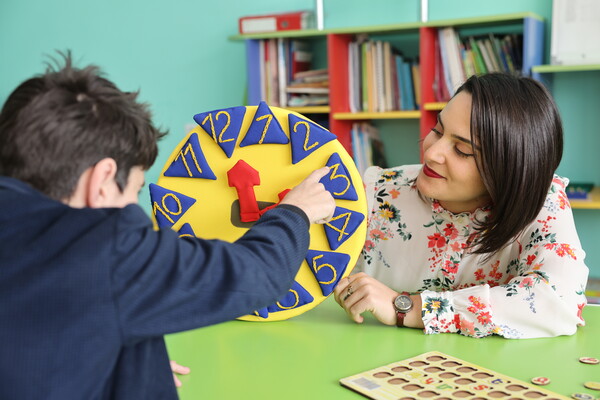
As an international student, Babikian explains that she had limited access to funding and research support, so receiving the K.M. Hunter Graduate Award provided much-needed help that allowed her to continue living and working in Toronto.
In her role as the founder of an international not-for-profit organization, Babikian is closely connected to the impact philanthropy can have, and its ripple effects to help people far beyond our own circles.
“It's important to really center a diverse range of lived experience in our research so the policies that are guiding health-care services are actually supporting people in the way they need,” she says. “I really appreciate the breadth of this scholarship – it supports many different types of research and students.”
Janette Vardy, MD, PhD
Professor of Cancer Medicine, University of Sydney
Director and founder of Sydney Cancer Survivorship Centre
Award year: 2005
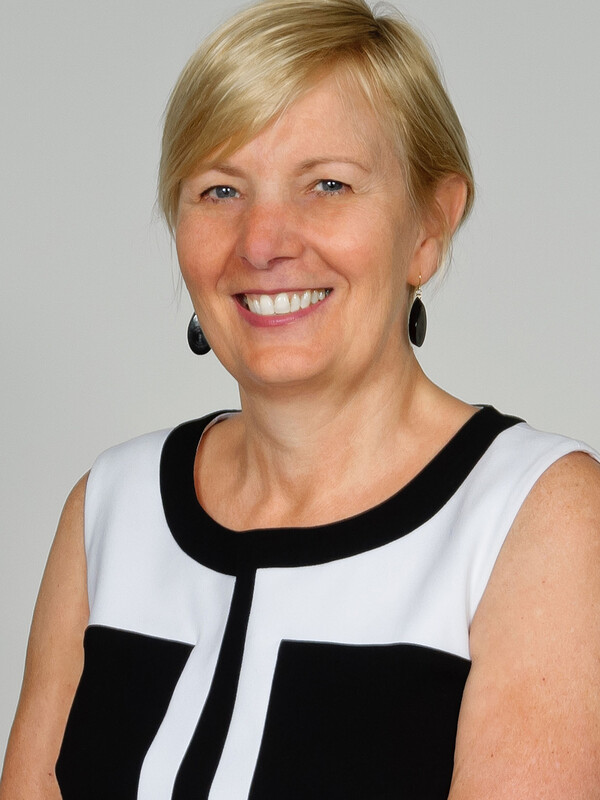
Janette Vardy was already a doctor when she decided to leave her native Australia to pursue further graduate life sciences studies in Toronto. She completed a PhD in Clinical Epidemiology at U of T under the supervision of Ian Tannock, now an emeritus professor of medicine and medical biophysics at the University and a world-leading medical oncologist and cancer researcher at the Princess Margaret Cancer Centre.
Vardy says she was drawn to research from her interest in how different body systems interact while a patient is undergoing treatment for cancer.
After receiving her PhD, Vardy established the Sydney Cancer Survivorship Centre with the vision of providing more holistic patient-centred care for cancer survivors. The centre places an emphasis on minimising long-term side effects of cancer treatments and improving overall well being for the patients.
“The K.M. Hunter Graduate Studentship gave me independent funding to be able to put towards my studies and ultimately helped with procuring subsequent grants and awards,” says Vardy. “Although pursuing my doctorate was time consuming and demanding, it gave me a good knowledge base to be able to come back to Australia and immediately establish my own small research group.”
News

